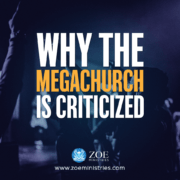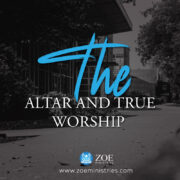Metaphoric Pilgrimages
Metaphoric Pilgrimages :
“Life is a pilgrimage. The wise man does not rest by the roadside inns. He marches direct to the illimitable domain of eternal bliss, his ultimate destination.”
Sivananda
POWER TRUTH
Whoever believes in the Son has eternal life; whoever disobeys the Son will not see life but must endure God’s wrath.
John 3:36 NRSV
Apart from the literal pilgrimages in the Bible, the theme of pilgrimage comes up repeatedly metaphorically. The prophet Isaiah explicitly uses the metaphor of the Mountain of the Lord:
In the last days
the mountain of the Lord’s temple will be established
as the highest of the mountains;
it will be exalted above the hills,
and all nations will stream to it.Many peoples will come and say,
“Come, let us go up to the mountain of the Lord,
to the temple of the God of Jacob.
He will teach us his ways,
so that we may walk in his paths.”
The law will go out from Zion,
the word of the Lord from Jerusalem.
He will judge between the nations
and will settle disputes for many peoples.
They will beat their swords into plowshares
and their spears into pruning hooks.
Nation will not take up sword against nation,
nor will they train for war anymore.Come, descendants of Jacob,
let us walk in the light of the Lord. (Isa. 2:2-5)
Isaiah: Shakespeare of the Prophets
Isaiah is sometimes referred to as the “Shakespeare of the Prophets” due to his verse’s lyrical and poetic nature. In another passage, he describes the final culmination of God’s plan in terms the Jews would understand – using the metaphor of the pilgrimage feasts.
As discussed in the previous chapter, the ancient Jews celebrated several holidays by pilgrimage to the Jerusalem temple. These feasts, Passover (Pesach), Pentecost (Shavuot), and the Feast of Booths (Sukkot), are related to events in Israel’s history and with agricultural occasions such as harvest.
During these feasts, Jewish men would come to Jerusalem from around the Holy Land, bringing sacrifices and grain offerings from their farms. They would eat ceremonial meals in the holy city and worship the Lord with special rituals. These feasts would be an excellent time of unity, celebration, and encounter with God. Isaiah uses these pilgrim feasts to portray the end when God will finally gather the redeemed. Here we can see a special connection to the ancient Feast of Booths. Which is also called the Feast of In-Gathering since it is a harvest-time feast, a time when farmers “in-gather” produce (Exo. 23:16). However, the final “in-gathering” that the prophet speaks of is a bringing in of people rather than grain.
In Isaiah 66, the prophet tells the people:
“And I, because of what they have planned and done, am about to come and gather the people of all nations and languages, and they will come and see my glory.
“I will set a sign among them, and I will send some of those who survive to the nations—to Tarshish, to the Libyans and Lydians (famous as archers), to Tubal and Greece, and to the distant islands that have not heard of my fame or seen my glory. They will proclaim my glory among the nations. And they will bring all your people, from all the nations, to my holy mountain in Jerusalem as an offering to the Lord—on horses, in chariots and wagons, and on mules and camels,” says the Lord. “They will bring them, as the Israelites bring their grain offerings, to the temple of the Lord in ceremonially clean vessels. And I will select some of them also to be priests and Levites,” says the Lord.” (Isa. 66:18-21)
Prophetic wisdom and anointing await you. Connect for a personal prophecy.
Join our LIVE Conference Call!
1) Call 515-604-9266
2) Go to startmeeting.com, and use the login: BishopJordan











Your point of view caught my eye and was very interesting. Thanks. I have a question for you.